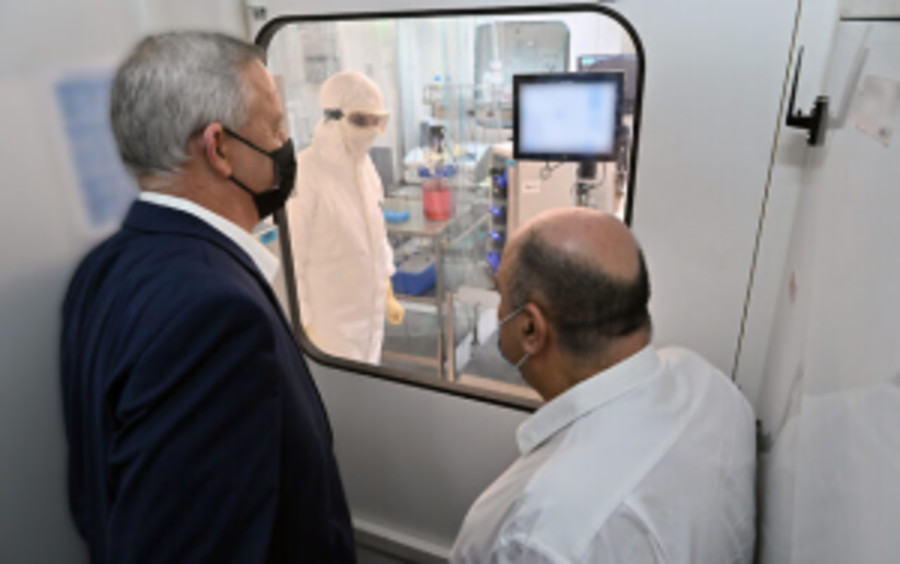Infection
New Covid variant causes small surge in infections in Israel, no new government mandates
Health care workers take test samples of Israelis in a drive through complex to check if they have been infected with the Covid-19, in Ramla, on April 18, 2021. Photo by Yossi Aloni/Flash90
With the new Covid-19 variant BA.2.86, nicknamed “Pirola” only recently being discovered in Israel, there has been some concern whether it would lead to a new wave of infections.
Last week, the Health Ministry reported a 30% spike in daily infections, leading them to instruct public hospitals to do PCR testing on all patients hospitalized in internal medicine departments.
The instruction was not received well by hospital heads, who complained that the benefits of increased testing were not worth the added work for their staff.
Within a few days, the spike in infections had already gone down.
The new variant was first discovered in Israel in July, and researchers are still trying to track its spread and its effects.
Last Monday, Samson Assuta Ashdod University Hospital said that the new variant accounted for over 16% of new cases tested in medical facilities.
However, some immunologists have noted that the new variant has a lower rate of infectivity than other variants. This means that the virus does not spread as easily.
So far, hospitals in Israel are not reporting an increase in severe symptoms with the new variant.
With so many unknowns about the new variant, the Health Ministry has not introduced any specific guidelines.
Dr. Netta Zuckerman, the director of the Center for Bioinformatics and Genomics at the Central Virology Laboratory, said, “It is too early to make a definitive statement. We are actively monitoring every instance in collaboration with the health intelligence experts at the Ministry of Health. However, due to the limited number of identified cases worldwide, it is challenging to predict its trajectory at this point.”
Pirola is only responsible for about 20% of new infections being tracked in health facilities, so health officials are unsure how serious the variant is.
Dr. Elroi Price said that while the spread of new variants is being monitored and investigated, there is no sign for concern yet.
“This whole thing is still being investigated, so it needs to be approached with great caution, but so far, those who have been infected with it are older individuals who did not require ICU treatment after infection.”
For now, the Ministry of Health has not issued any new guidelines.
We recommend to read:



